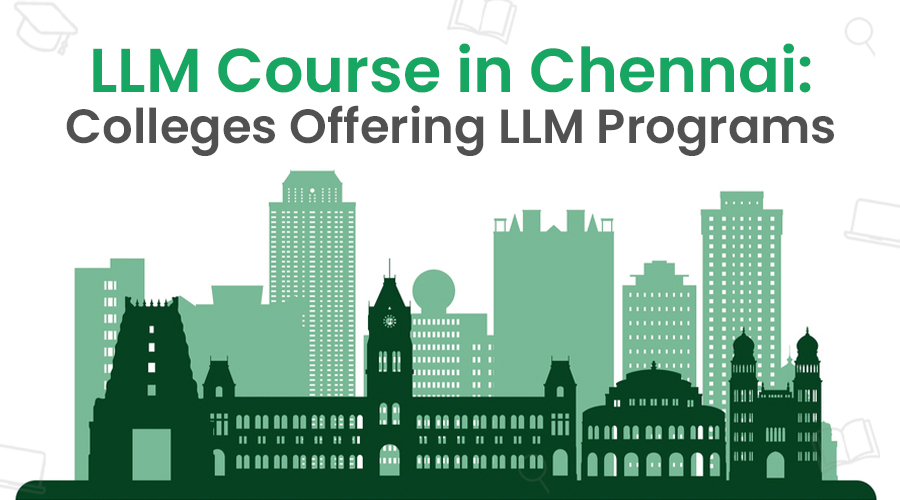Degree Requirement
Applicants must hold a Bachelor’s degree in Law (LLB) from an accredited institution.













An LLM course encompasses a blend of coursework, research, and dissertation, focusing on advanced legal studies in chosen specializations like Corporate Law, International Law, and Intellectual Property. Students engage in interactive lectures, case studies, and practical exercises, enhancing critical thinking and analytical skills. The program includes a significant research component, culminating in a final thesis, with opportunities for publishing papers. Online LLM courses offer flexible schedules, making them ideal for working professionals, and provide access to extensive online resources, virtual classrooms, and networking opportunities with peers and industry experts. Assessment is through regular assignments, exams, and continuous participation, ensuring comprehensive skill development in legal writing, reasoning, and professional ethics.
The duration of an LLM (Master of Laws) course typically ranges from 1 to 2 years, depending on the university and the mode of study. Full-time programs usually take 1 year to complete, while part-time programs can extend up to 2 years, offering flexibility for working professionals. Online LLM courses often provide even more flexibility, allowing students to complete the program at their own pace within a similar timeframe.

Degree Requirement
Applicants must hold a Bachelor’s degree in Law (LLB) from an accredited institution.
Required Marks
Typically, candidates should achieve a minimum percentage or CGPA set by the university, usually around 50-55%.
Entrance Tests
Candidates need to successfully clear relevant entrance exams, such as CLAT-PG, AILET-PG, or specific university assessments.
Work Experience Preference
Some universities may prefer or mandate relevant professional experience in the legal sector.
Proficiency Tests
Non-native English speakers might be required to provide proof of English language proficiency through tests like IELTS or TOEFL.
Supplementary Requirements
Certain universities may request additional documents, such as a statement of purpose, letters of recommendation, and may conduct interviews.
| Specialization | Common Subjects |
|---|---|
| International Law | Public International Law, Human Rights Law, Trade Law, Environmental Law |
| Corporate Law | Corporate Governance, Business Restructuring, Securities Regulation, Financial Compliance |
| Intellectual Property | Patent Law, Trademark Law, Copyright Law, Global IP Law |
| Human Rights Law | International Human Rights, Refugee Law, Gender Rights, Social Justice Studies |
| Environmental Law | Environmental Protection, Climate Law, Natural Resources Law, Energy Regulation |
| Taxation Law | Corporate Tax, International Taxation, Personal Tax, Tax Policies |
| Criminal Law | Criminal Procedure, Forensic Analysis, Comparative Justice Systems, Sentencing Policies |
| Commercial Law | Commercial Arbitration, Business Contracts, Competition Law, Consumer Rights |
| Family Law | Marriage & Divorce Law, Child Rights, Inheritance Law, Domestic Abuse Law |
| Labour Law | Employment Regulations, Industrial Relations, Social Security Law, Workplace Safety |
| Constitutional Law | Comparative Constitutional Studies, Constitutional Rights, Federal Structures, Constitutional Theory |
| Administrative Law | Administrative Processes, Judicial Oversight, Public Law, Regulatory Frameworks |
| Banking and Finance Law | Banking Regulations, Financial Markets, Investment Law, Insurance Regulations |
| Dispute Resolution | Mediation Techniques, International Arbitration, Conflict Management, Legal Ethics |
| Entrance Exam | Conducting Body | Key Details |
|---|---|---|
| CLAT (Common Law Admission Test) for LLM | Consortium of National Law Universities (NLUs) | National-level examination for postgraduate law admissions at NLUs and other affiliated institutions |
| AILET (All India Law Entrance Test) | National Law University, Delhi (NLU Delhi) | University-specific exam for admission to LLM programs at NLU Delhi |
| LSAT (Law School Admission Test) India | Law School Admission Council (LSAC) Global | Standardized assessment for entry into law programs, including LLM, at participating law schools |
| DU LLM Entrance Exam | University of Delhi | University-level exam for LLM admission at the Faculty of Law, University of Delhi |
| BHU PET (Banaras Hindu University Postgraduate Entrance Test) | Banaras Hindu University (BHU) | University-level exam for LLM admissions at BHU |
| IPU CET (Indraprastha University Common Entrance Test) | Guru Gobind Singh Indraprastha University (GGSIPU) | University-specific entrance test for LLM programs at GGSIPU and its affiliated institutes |
| PU LLM Entrance Exam | Panjab University | University-specific exam for admission to LLM programs at Panjab University |
| JMI LLM Entrance Exam | Jamia Millia Islamia | University-level exam for LLM admissions at Jamia Millia Islamia |
| MH CET Law (Maharashtra Common Entrance Test for Law) | State Common Entrance Test Cell, Maharashtra | State-level examination for LLM admissions across various law colleges in Maharashtra |
| TS PGLCET (Telangana State Post Graduate Law Common Entrance Test) | Osmania University, Hyderabad | State-level exam for admission to LLM programs in law colleges throughout Telangana |
| University/Institute | Location | Fees (Approx.) |
|---|---|---|
| University of Mumbai – Department of Law | Mumbai, Maharashtra | ₹30,000 – ₹40,000 |
| National Law School of India University (NLSIU) | Bangalore, Karnataka | ₹1,50,000 – ₹2,00,000 |
| NALSAR University of Law | Hyderabad, Telangana | ₹1,00,000 – ₹1,50,000 |
| Lovely Professional University (LPU) | Phagwara, Punjab | ₹80,000 – ₹1,00,000 |
| Jindal Global Law School | Sonipat, Haryana | ₹3,00,000 – ₹4,00,000 |


Application Form
Begin by filling out the online application form available on the university’s official website.
Educational Qualifications
Submit details of your academic credentials, including transcripts from your undergraduate law degree (LLB) obtained from a recognized institution.
Entrance Examination
Some universities may require candidates to pass an entrance examination specific to LLM admissions, such as CLAT-PG, AILET-PG, or other institution-specific tests.
Work Experience (if applicable)
Relevant work experience in the legal field may be taken into account by some universities as part of the admission criteria.
Statement of Purpose (SOP)
Craft a statement of purpose outlining your academic and professional background, career goals, and motivations for enrolling in the LLM program.
Letters of Recommendation
Provide letters of recommendation from academic or professional referees who can vouch for your capabilities and suitability for the program.
Interview (if required)
Certain universities may conduct interviews to further evaluate your fit for the program.
Application Processing Fee
Complete the application process by paying the processing fee as outlined by the university.
Document Verification
Upon receiving a provisional offer, submit original documents for verification, including identity proof, academic certificates, and other relevant documents.
Admission Confirmation
Once all steps are successfully completed and eligibility criteria met, the university will send an official admission offer.
Tuition Fee Payment
Confirm your enrollment by paying the tuition and any other associated fees within the specified deadline.













